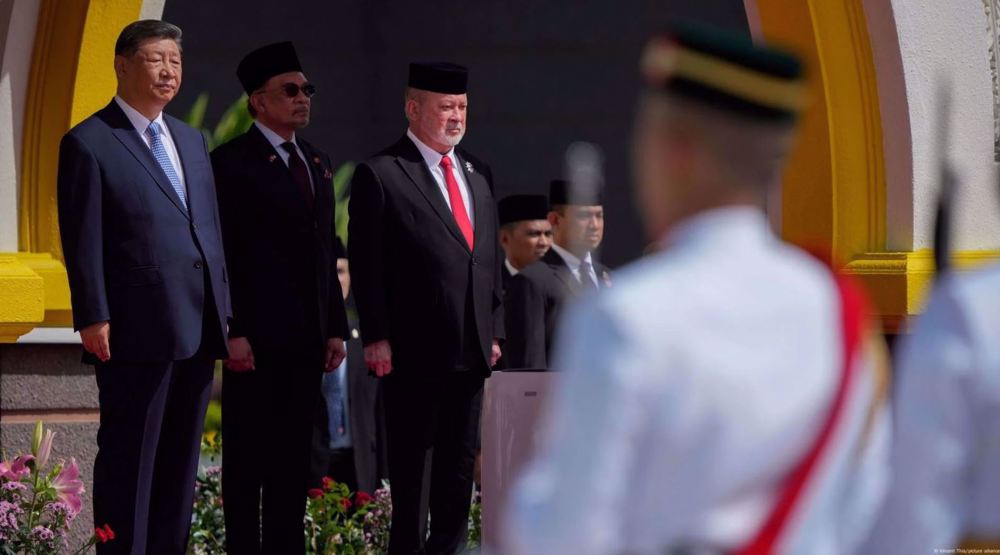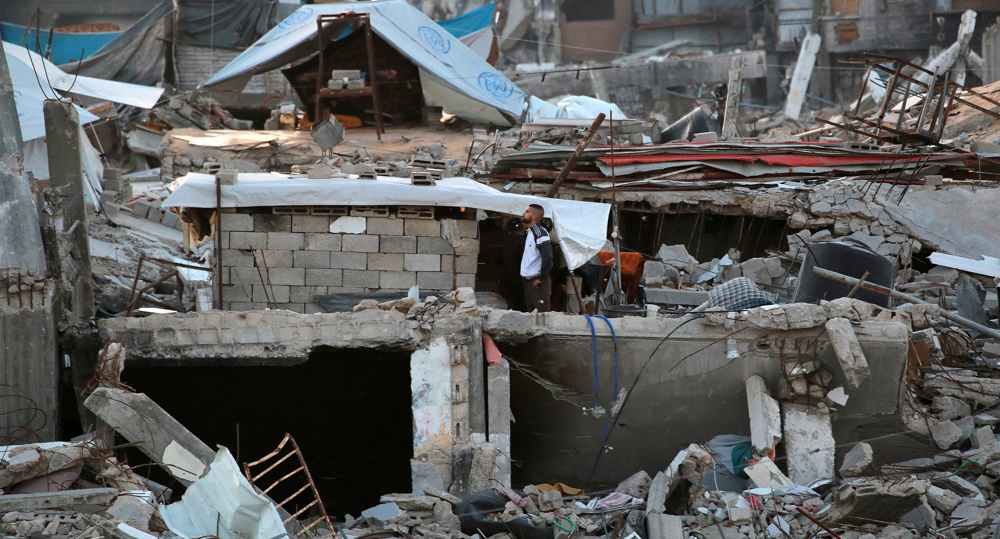Myanmar's Suu Kyi blamed for Rohingya 'genocide'
Three Nobel Peace laureates have accused Myanmar's de facto leader Aung San Suu Kyi and the country's military of involvement in "genocide" for their role in violence against the Rohingya Muslim community in Rakhine state.
Irish peace activist Mairead Maguire, Tawakkol Karman from Yemen and Iranian Shirin Ebadi said at a joint news conference in the Bangladeshi capital, Dhaka, on Wednesday that their fellow Nobel Peace laureate Suu Kyi cannot avoid responsibility.
They were on a week-long trip to Bangladesh to visit the sprawling refugee camps where the Rohingya are living.
All of them unanimously called the violence against Rohingya "genocide."
"There is no other definition, it is genocide, genocide against innocent people," Karman said.
"Millions of people (have) been displaced from their cities, women (have) been raped, all the women, we met like 100 women, all of them (have) been raped."
Karman urged Suu Kyi to resign, saying that otherwise she would "face prosecution."
She said the laureates were overwhelmed as they talked to the children. "Most of the children we met ... fled to Bangladesh without their families. Their fathers, their mothers (have) been killed, been murdered."
Elsewhere in her remarks, Karman said as Myanmar's leader, Suu Kyi should not be silent. "She did not tell the truth to the world. She should stop her silence, she should wake up and stop this genocide."
Maguire said they were looking for legal options to ensure justice. "We plan to take Myanmar's government to the International Court of Justice."
Ebadi blasted some Islamic countries for not doing enough for the Rohingya Muslims.
The laureates also met Bangladeshi Prime Minister Sheikh Hasina and promised to work toward solving the crisis.
Suu Kyi has done virtually nothing to stop the crimes committed by the military against the Rohingya.
Suu Kyi’s government has snubbed and obstructed UN officials who have sought to investigate the situation and it has prevented aid agencies from delivering food, water and medicines to the refugees.
Speaking at a meeting of the United Nations Human Rights Council in Geneva on Wednesday, Canada's Foreign Minister Chrystia Freeland described the atrocities against the Rohingya people in Myanmar’s Rakhine State as “ethnic cleansing.”
Bangladesh and Myanmar signed an agreement late last year to repatriate about 700,000 Rohingya Muslim refugees who have crossed the border since August to escape a brutal crackdown by the military.
The repatriation was set to start last month but was delayed due to a lack of preparation as well as protests staged by Rohingya refugees against the plan to send them back to Myanmar while conditions were not safe for their return.

Myanmar’s government troops have been committing killings, making arbitrary arrests, and carrying out arson attacks in Muslim villages in Rakhine since late 2016.
The Rohingya have lived in Myanmar for generations but are denied citizenship and are branded illegal immigrants from Bangladesh, which likewise denies them citizenship.
The UN has also described the 1.1-million-strong Muslim community as the most persecuted minority in the world.

China ‘firmly’ opposes countries making trade agreements with US at its expense

China says stands with Malaysia, region in face of unilateralism

Maldives bans entry of Israelis in ‘resolute solidarity’ with Palestinians
Iran unveils legal strategies for SCO states to counter challenges
Gaza’s slow death: How aid blockade has pushed Palestinians to the brink
US plan requires Ukraine to give 20% of territory to Russia: Report
Iran: New sanctions show US 'lack of goodwill' in talks with Tehran
Charred bodies found in school as Israeli strikes kill dozens in Gaza
VIDEO | Press TV's news headlines
The April Revolution: One-year anniversary of Gaza solidarity encampments in US
Pezeshkian hails Iran-Azerbaijan ties ahead of visit to Baku







 This makes it easy to access the Press TV website
This makes it easy to access the Press TV website